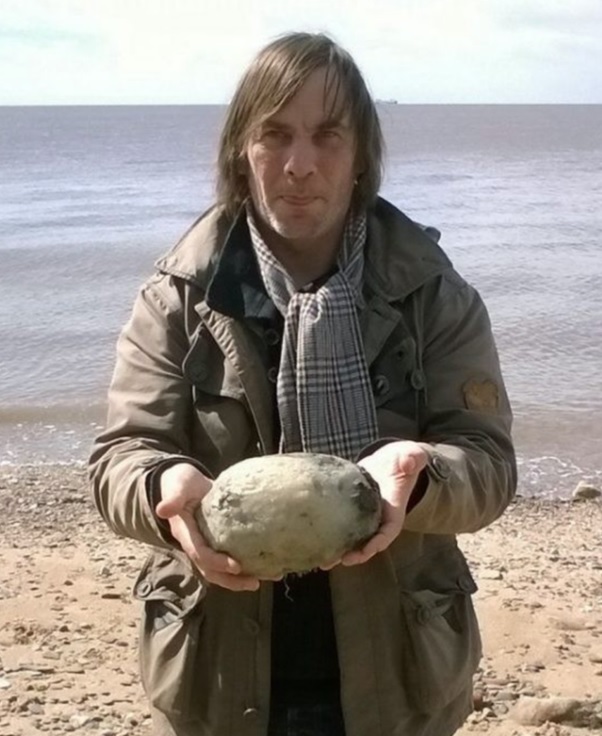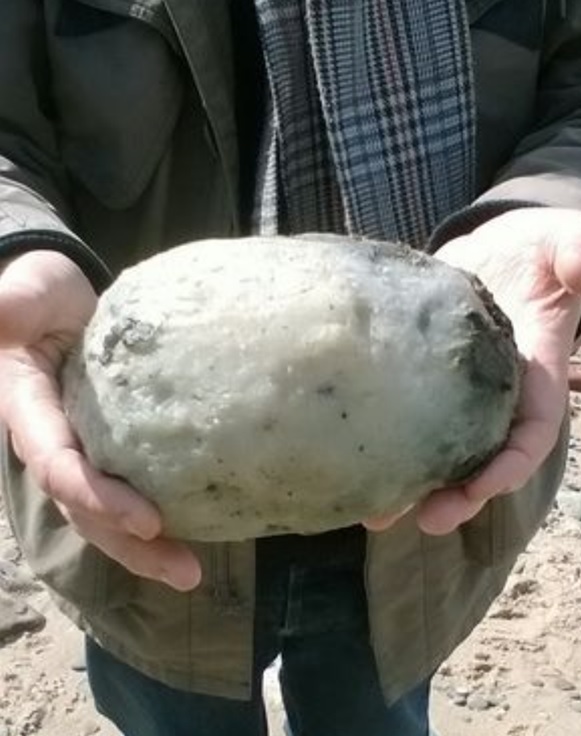Overton, Lancashire residents Gary and Angela Williams were walking along Middleton Sands beach near Morecambe Bay when they detected the smell of rotting fish.
Following the odor, they stumbled upon an unusual “rock” that resembled ambergris, also known as “whale vomit,” a rare substance used in perfume making.

The couple, recalling information about this valuable substance from a newspaper, wrapped the large lump in a scarf and took it home.
Gary, 48, later weighed the lump on his fishing scales and found it to be 1.57kg, slightly more than half the size of another piece discovered years ago near Morecambe.
The previous find of “whale vomit” had a remarkable 2013 valuation of £120,000.
Gary and Angela, a 49-year-old nurse, are currently negotiating with potential buyers for the recently discovered lump, which is slightly smaller than a rugby ball.

Ambergris, formed from the hardened intestinal contents of a sperm whale, is known as “floating gold” due to its rarity and high value to perfume manufacturers.
The substance takes years to develop and is believed to protect the whale from sharp objects it ingests.
Before washing ashore, ambergris can float in the ocean for many years, gradually turning into a smooth, grey lump after prolonged exposure to sun and saltwater.
Engineer Gary described the discovery as “a bit of a shock.”
He mentioned that they found it along a rarely frequented part of the beach.
“Though it smells quite unpleasant. It has a very distinct odor, like a mix of farm manure and squid.
“It has the texture of a very hard rubber ball and feels waxy, like a candle. Wax sticks to your fingers when you touch it.”
He added, “If it is valuable, it will significantly help us buy a static caravan. That would be a dream come true.”
When they go for walks, Gary and Angela often look for interesting objects on the beach.
They discovered the 1.57 kg of ambergris on Sunday and have since stored it safely while consulting two experts—one in France and one in New Zealand.
Experts estimated the value of the 2.7 kg piece that washed ashore in Morecambe in 2013 to be as high as £120,000.